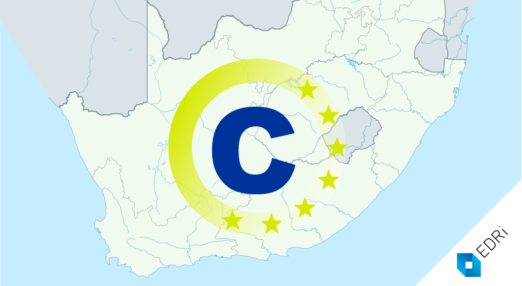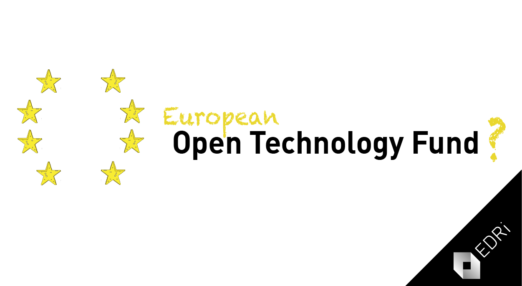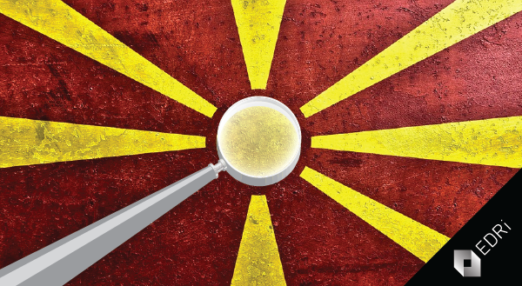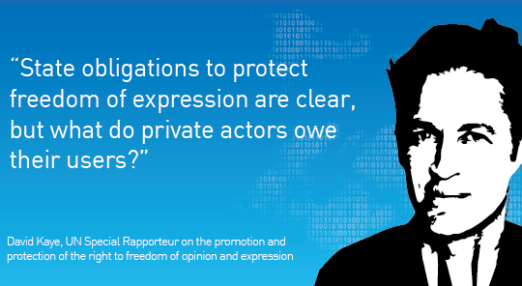freedom of information
Filter by...
-

European Commission derails copyright reform in South Africa
Last year, the South African parliament adopted a progressive new copyright bill that would have drastically improved access to educational materials, introduced a fair use exception, implemented the Marrakesh treaty for the benefit of people who are blind or print disabled, and strengthened the negotiating positions of authors and performers in their negotiations with publishers.
Read more
-

The threat on OTF as a wake up call for European digital sovereignty
Around 2 billion people in 60 countries are able to use the internet securely and without risks of being surveilled or censored. And all of this, thanks to the work done by a non-profit called Open Tech Fund (OTF) for only 15 million dollars a year. However, all of this may be over soon.
Read more
-

UK: Stop social media monitoring by local authorities
Would you like your local government to judge you by your Facebook activity? In a recent study, we investigated how local authorities (Councils) in Great Britain are looking at social media accounts as part of their investigation tactics on issues such as benefits, debt recovery, fraud, environmental investigations, and children’s social care.
Read more
-

Surveillance by default: PATRIOT Act extended?
On 15 March, Section 215 of the USA PATRIOT Act, and several other similar legal provisions, were due to expire and begin the process of reform and review to incorporate new legal protections of privacy. However, as a result of a coordinated effort by both chambers of the US Congress, the provisions may be extended for at least 77 days.
Read more
-

New freedom of information law proposed in North Macedonia
The right to freedom of information (FOI) is protected by law in North Macedonia since 2006. In theory, the law complies with international standards and creates a solid basis for establishing a system to protect this right. However, the practice during the past 12 years has shown legal gaps, inconvenient practices, and inefficiency of the […]
Read more
-

Hermes Center demands investigation of NAT-related data retention
On 27 March 2018, EDRi member Hermes Center for Transparency and Digital Human Rights filed a request with the Italian Data Protection Authority (DPA) to investigate on the widespread practice of logging Network Address Translations (NAT) by most of the telecommunication operators.
Read more
-

Did the EU Commission hide a study that did not suit their agenda?
In 2013, the European Commission announced a launch of a study on copyright – and never published its results. Julia Reda, a Member of the European Parliament (MEP), tabled a freedom of information request on this issue and was eventually granted access to the study.
Read more
-

Should video-sharing platforms be part of the AVMSD?
The Audiovisual Media Services Directive (AVMSD) is currently being reformed. After going through several legislative stages, the AVMSD is now being negotiated in trilogues, that is, informal, secret negotiations between the European Parliament (representing citizens) and the Council (representing EU Member States), facilitated by the European Commission (representing EU interests). As part of the negotiations, […]
Read more
-

Commission’s waiting game: Gambling with freedom of information
In April 2017, EDRi wanted to shed light on the industry lobbying in Brussels surrounding the copyright reform. We therefore filed a freedom of information (FOI) request to access the correspondence the European Commission received from rightsholders at the time it was finalising its proposal for the new Copyright Directive.
Read more
-

UN Rapporteur demands respect for freedom of expression online
The United Nations (UN) Special Rapporteur on the promotion and protection of the right to freedom of opinion and expression David Kaye has released a new report, which gives an overview of the problems for freedom of expression and opinion in the Telecommunications and Internet Access Sector. The report also provides general recommendations for states […]
Read more
-

EU Commission on FOI request: Incompetence or ill-intent?
In April 2017, we got a little curious about industry lobbying in Brussels surrounding the copyright reform. We therefore filed a freedom of information (FOI) request to access the correspondence that the Directorate-General for Communications Networks, Content and Technology (DG CNECT) of the European Commission received by rightsholders shortly before the reform proposal was finalised […]
Read more
-

UK Digital Economy Act: Millions of websites could be blocked
The Digital Economy Act has become law in the United Kingdom. This wide-ranging law has several areas of concern for digital rights, and could seriously affect privacy and freedom of expression of internet users. One of the main concerns is that it will compel legal pornographic websites to verify the age of their users. The British […]
Read more
